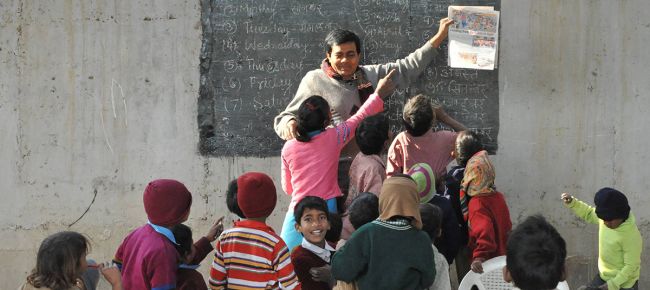Lebanon: Education International affiliates mobilise for the right to education of Syrian refugee children
To assess the underlying causes of this situation, Education International and the Friedrich Ebert Stiftung have decided to conduct a survey, in collaboration with theLeague of Public Primary School Teachers (PPSTL), theLeague of Public Secondary School (LPESPL) and the Teachers Syndicate of Lebanon (TSL).
Following a one-day planning meeting with all affiliates in May 2016 aiming to define the objectives, scope and methodology of the survey, it was administered during four regional consultation workshops between October and November 2016 in the Bekaa region, South Lebanon, Beirut/Mount Lebanonand North areas, bringing together a total of 213 teachers and administrative staff.
The analysis of the questionnaires allows for a comprehensive understanding of factors preventing Syrian refugee children from accessing education, such as the lack of spaces in public schools or the dire financial situation of Syrian families to afford transportation costs and resulting in childrenworking to support the households’ expenses.
Respondents also highlighted a series of factors provoking absenteeism and dropout amongst Syrianrefugee children, such as the language barrier related to the implementation of a multilingual Lebanese curriculum, the low education level of Syrian children and parents and the interruption of education for a long period of time due to conflict and displacement.
The study shows that only 55 per cent of surveyed teachers and staff had participated in professional development and training initiatives in the last two years although the presence of refugee childrenin class had impacted their teaching and assessment methods.
Overall, the survey shows the relationship between access to quality education for refugeechildren and the needed reforms of the Lebanese education system, beyond current policies and programmes, in order to improve access to schools, learning environments, teaching and learning processes as well as the working conditions of Lebanese teachers and school staff.
Following the publication of the report of the survey, a series of workshops will be organized in collaboration with all participating education unions to develop advocacy strategies based on theevidence collected through the survey.
The report of the survey is available here.

[Wed, 18 Oct 2017 14:43:00 +0000] | DIGG THIS
Phone: +32-2 224 06 11 · Email: eiaco@ei-ie.org
